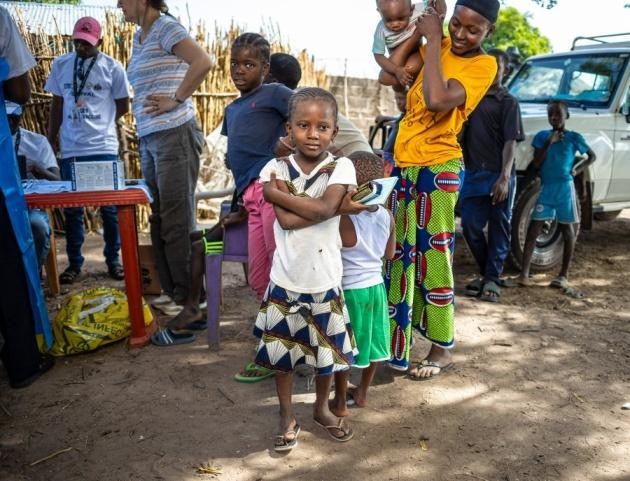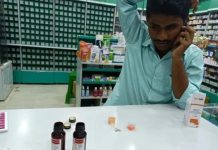In Sotuma Sainey Kandeh and many other villages across The Gambia’s Upper River Region (URR), a vaccine is transforming health outcomes for people. For decades, malaria was part of the daily life for communities, interrupting schools, livelihoods by affecting their health. But in 2024, people in Sotuma Sainey Kandeh began to experience change, thanks to a new malaria vaccine trial that brought hope to the community.
The SERVAL project, led by MRC-G at LSHTM in partnership with the National Malaria Control Program, introduced the R21 / Matrix-M malaria vaccine across 15 villages in URR. With over 3,500 people vaccinated, including children as young as five months, the village of Sotuma Sainey Kandeh recorded zero malaria cases last year, for the first time in decades.
“Before, malaria was everywhere,” Bala Kandeh, a farmer, said.
“Now, I can farm without worrying about getting sick or taking any member of my family to the health centre. Life is easier,” he said.
Like many others, Bala was hesitant at first. Rumours about side effects made people nervous. But local health workers, like Mama Kandeh, took time to go door-to-door, answering questions and building trust. “Now, people can see the results,” he said. “They believe.”
A pregnant woman shared how she took the vaccine without challenges: “I did not get sick. I did not get malaria, and now I have a healthy baby. I tell others not to be afraid.” Over time, persistent engagement and positive testimonials like these helped change perceptions.
The village head, Alagie Kandeh, noted how the vaccine changed healthcare in their area. “We have not had malaria patients needing hospital care this year, unlike before, when we were constantly taking patients to the hospital,” Alagie said. He said initially, some were unsure about the vaccine, but now everyone has seen its benefits, and they are grateful to MRC-G for their free diagnosis, medication and emergency support.
Even those who did not take the vaccine are seeing its impact. Alieu Mballow, a young resident, admits he regrets not joining the first round and said: “Next time, I will be the first in line, and because I can see the impact of the vaccine especially on our children.”
The community-wide shift is part of a regional initiative. The SERVAL study is also running in Burkina Faso, covering 24 villages. Its primary aim is to assess whether seasonal mass vaccination with R21 can significantly reduce malaria prevalence and support elimination efforts. As Dr. Annette Erhart, one of the lead researchers explains: “We aim to protect entire communities, monitor the vaccine’s safety, and reduce malaria to the point of elimination.”
Regional leaders including URR Governor, Samba Bah, are hopeful saying: “This is the kind of research that transforms our health system and supports our national development goals.”
As the rainy season approaches, the SERVAL team is gearing up to give booster doses and reach those who missed out last year with the ultimate goal of keeping malaria away for good.
According to the World Health Organization (WHO), Africa accounted for 94% of global malaria cases and 95% of deaths in 2023, with children under 5 years making up 76% of the fatalities. Overall, there were 263 million cases and 597,000 deaths worldwide that year.
In The Gambia, the burden of malaria varies by region, with the Upper River Region (URR) experiencing the highest rates, especially during the rainy season. For instance, studies by Mwesigwa et al from 2012 to 2015, showed that malaria prevalence in URR villages ranged from 4.32% to 36.75%. While the burden has decreased substantially over the last 10-20 years, malaria transmission is still ongoing.
For Sotuma Sainey Kandeh and beyond, this vaccine trial is not just a study; it is a turning point. Through science, community trust, and support, the village can hope for a malaria-free future which now feels closer than ever.



















